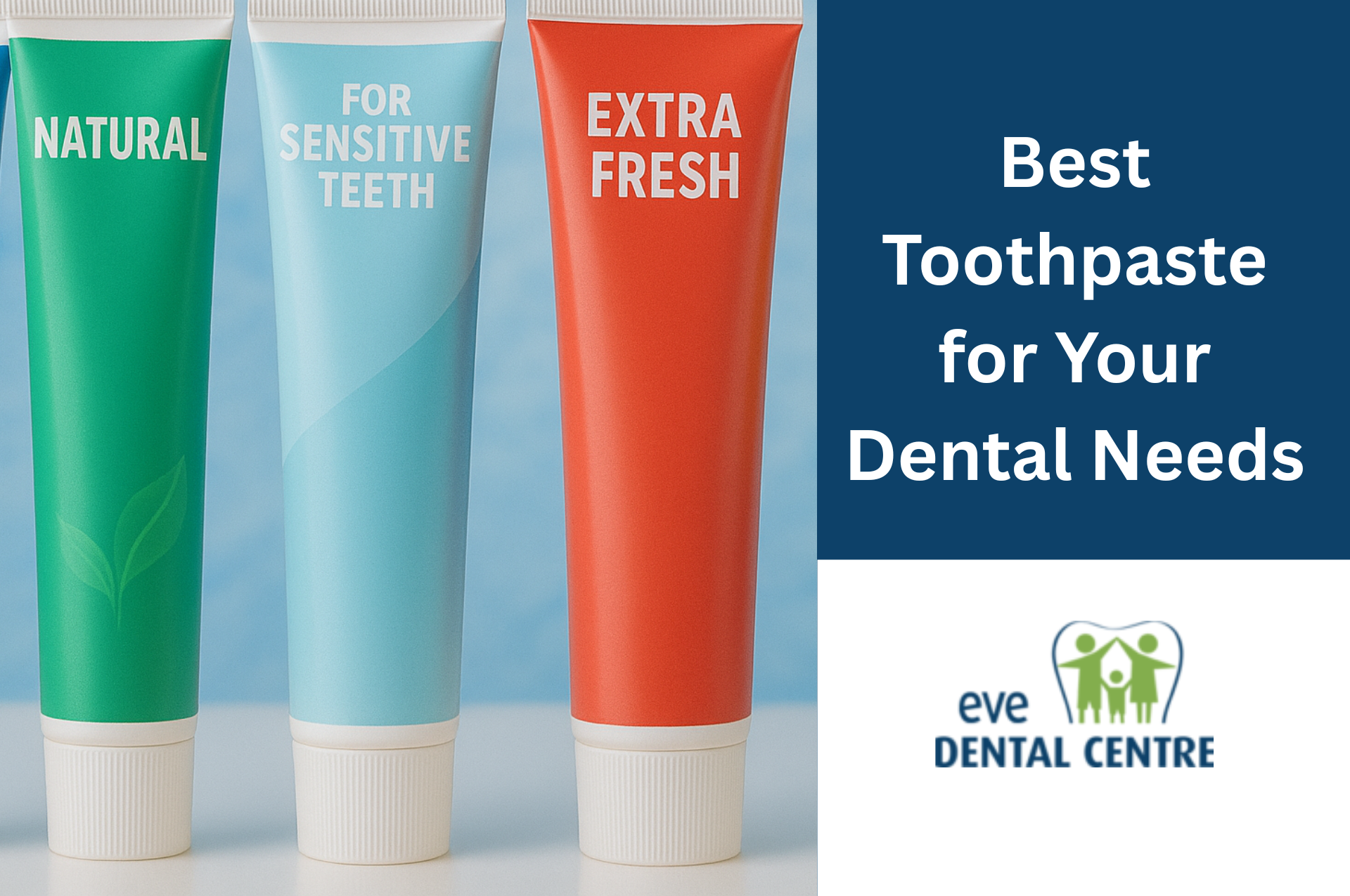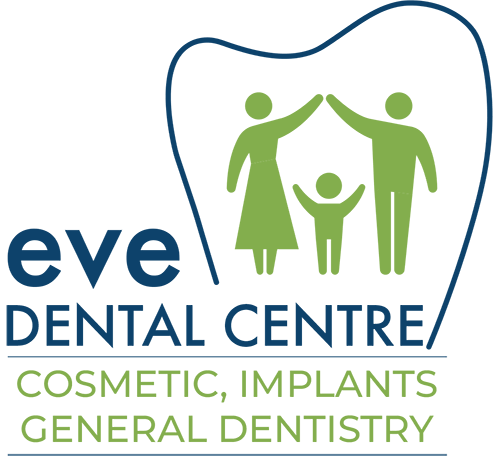How to Choose the Best Toothpaste in Australia for Your Dental Needs
Ever find yourself staring at all the colourful boxes of toothpaste on a store shelf, wondering which one is best for you? Its primary functions include removing plaque, preventing tooth decay, and maintaining fresh breath. To find the best toothpaste in Australia for your dental health needs, you will want to examine your oral health problems and choose a toothpaste that specifically addresses those problems.
The toothpaste is designed for cavity prevention, sensitivity, whitening, and tartar control. You will want to look for fluoride, potassium nitrate, and baking soda as helpful ingredients. Visit the best general dentist for regular checkups and consider recommended toothpaste into consideration, especially if you have gum disease or enamel erosion. Ultimately, you will choose toothpaste that will improve your dental health needs. Let us get into the details on what toothpaste is best for you.
Fluoride Vs. Non-Fluoride Toothpaste
Fluoride Toothpaste:
- This type of toothpaste has fluoride, which is a mineral that has been clinically shown to reduce tooth decay.
- Fluoride does help with naturally reinforcing enamel and remineralizing the early stages of tooth decay.
- The best fluoride toothpaste is recommended for daily use by many dental organizations, i.e., the Australian Dental Council and, World Health Organization (WHO).
- Fluoride toothpaste will also assist in decreasing your chance of getting cavities in children as well as adults.
- Fluoride toothpaste is fairly cheap and easy to find.
- Fluoride toothpaste is effective for those with a high risk of developing cavities, i.e., people with braces, dry mouth, etc.
- Fluoride toothpaste is safe when used as directed, but excess fluoride ingestion (especially in children) can lead to the condition fluorosis.
Non-Fluoride Toothpaste:
- Fluoride is missing and is usually used by people who consciously avoid synthetic chemicals.
- Typically made with natural substitutes such as xylitol, baking soda, or herbal extracts.
- It may reduce plaque and freshen breath, but it is less effective in helping prevent cavities.
- Some parents may choose to use fluoride-free toothpaste for children under the auspices of prevention; children tend to put toothpaste in their mouths and swallow it, while toothpaste is recommended to be spit out.
- Non-fluoride toothpaste is a growing trend in natural and organic personal care markets.
- Non-fluoride toothpaste can also be recommended for many changes under the recommendation of a dental professional for only low-risk cavity individuals.
- Non-fluoride toothpaste does not cause fluorosis, making it more popular in fluoride-sensitive individuals.
What to Choose:
Fluoride toothpaste is the preferred toothpaste for its effectiveness in cavity prevention.
Non-fluoride toothpaste may meet your specific needs, but recommendations should be supported by dental advice.

The Role Of Xylitol In Toothpaste
- Xylitol is a natural sugar alcohol commonly found in toothpaste and has great effects on dental health.
- Xylitol inhibits the growth of the chief decay-causing bacterium Streptococcus mutans, which helps prevent cavities. And while sugars are broken down by bacteria in your mouth, exposing your teeth to those harmful acids, xylitol does not break down and so helps keep acids lower and assists in keeping a more stable degree of pH.
- Xylitol helps to produce saliva that is needed to remineralize tooth enamel and clears your mouth.
- Xylitol also helps to decrease plaque deposits, assists in hygiene, and, of course, is sweet, making toothpaste taste better (especially for children).
Whitening Toothpaste: Best Active Ingredients
The best active ingredients for whitening toothpaste are:
Hydrogen Peroxide
- A mild bleaching agent (used at correct concentrations and applications), and removes intrinsic (deep/inside) stains and extrinsic (transfer/surface) stains.
- Hydrogen peroxide is usually used in low concentrations, which are safe for daily use.
Carbamide Peroxide
- Carbamide peroxide breaks down into hydrogen peroxide. Low concentrations are usually used.
- Concentrations at higher levels are commonly seen in professional teeth whitening products.
- Carbamide peroxide is proven to be effective and non-damaging to enamel, provided it is used correctly.
Silica Abrasives (Hydrated Silica)
- Silica is a mild abrasive.
- It is beneficial in physically polishing or removing surface stains, similar to cream cleaning products.
- When formulated correctly, it is not damaging to enamel.
Baking Soda (Sodium bicarbonate)
Removal of the stain using baking soda is gentle (slightly abrasive), has some utility with neutralizing acids (baking soda is slightly alkaline), and may assist in stain removal (through abrasion or some slight alkalinity), plus it “freshens” your breath.
Blue Covarine
- Blue covarine is not a stain remover; it’s a colour correction agent and produces an immediate optical whitening effect.
- It is not whitening your teeth, but changing the way your teeth reflect light.
Enzymes (Papain, Bromelain)
They break down proteins that cause staining. Gentle and natural, on the tooth structure.
Fluoride
- Fluoride is not a whitener but an ingredient that is very protective of the enamel during whitening or bleaching.
- Fluoride strengthens teeth and prevents them from decaying.
Note For Best Results: You want to be looking for a toothpaste that has a combination of safe abrasives and a safe bleaching agent, plus fluoride for enamel protection. Always look for ADA-approved products as the best toothpaste in Australia.
Toothpaste For Sensitive Teeth
The best sensitive toothpaste is specially designed to relieve sensitivity caused by exposure to hot, cold, sweet, or acidic foods and drinks. Sensitivity to hot or cold food or drink can occur when you lose enamel due to wear or gum tissue when it recedes. This can increase sensitivity by exposing the dentin layer and nerve endings. Sensitive toothpaste can have effects on sensitivity in two ways: the sensitivity toothpaste can block exposed pathways to the nerves or deaden nerve endings themselves.
Common ingredients for the best sensitive toothpaste are potassium nitrate, which calms nerve endings in the teeth, and stannous fluoride, which will protect the dentin by covering it with a protective barrier. With continued use of these ingredients, over time, a person with sensitive teeth will experience less sensitivity. Some ingredients will include fluoride to strengthen the enamel and reduce cavities from acid.
It is recommended to choose toothpaste labeled for sensitive teeth specifically and to check for the dental association signals on the label. Shy away from whitening toothpaste strategies and be careful with a toothpaste brand with the most abrasive effects or materials added, as those could increase sensitivity.
Usually, people use sensitive toothpaste alongside a soft-bristle toothbrush. It is also advised to brush gently twice daily with sensitive toothpaste for the maximum benefit of the toothpaste. You might start to notice some relief from sensitivity in as little as a week; some took up to four weeks of the regular use of sensitive toothpaste to achieve that level of relief from sensitivity!
If you continue to have sensitivity to hot or cold food and drinks, speaking with a dentist might be appropriate because sensitivity to these foods and drinks could be an indication of the condition of your health or teeth. More serious dental issues like gum disease, cavities, or cracked teeth may require treatment from your dentist.
Tartar Control Toothpaste
This is the best toothpaste product designed in order to stop the formation of tartar, which is a hard type of plaque that can cause gum disease and tooth decay. It generally features active ingredients such as pyrophosphates or zinc that convert the plaque into tartar slowly. In some cases, the composition may involve antimicrobial agents, for instance, triclosan, which is taken to reduce the number of bacteria in the mouth.
With the inclusion of tartar control toothpaste in your regular dental care, you can witness cleaner teeth and gum health consistently as a result of the combination of the three. Though it might not remove the existing tartar, only a dental professional can. Yet, to a larger degree, it is very helpful in the fight against future buildups of the same.
Countless kinds of tartar control toothpastes are obliged to put fluoride in them, so that the enamel can become solid again and start the battle against the invasion of cavities. The most effective way to get a result is to use the toothpaste twice a day and go to the dentist for regular check-ups. People who often get tartar should use tartar control toothpaste to benefit the most in their oral hygiene routine.
All-In-One Toothpaste
All-in-one toothpaste combines multiple benefits like cavity protection, whitening, and fresh breath in a single formula. It simplifies your oral care routine by addressing common dental needs at once. Popular among Australians seeking convenience without compromising on effectiveness.
SPRY Whitening Fluoride Toothpaste
- Whitening Power: Utilizes xylitol and natural polishing agents that are not abrasive to teeth to progressively make them whiter.
- Fluoride Protection: The best fluoride toothpaste provides prevention of cavities and the strengthening of enamel as it contains fluoride.
- Natural Ingredients: Contains aloe vera and cranberry extract that will keep gum problems away.
- Xylitol-Rich Formula: Besides being rich in xylitol, the formula alkalizes the oral milieu and facilitates the reduction of plaque and bacterial deposits on the teeth’s surface.
- Non-GMO & Gluten-Free: It is safe to use for people who care about health and those suffering from allergies.
- Fresh Taste: It has a minty taste, which is mild but very refreshing to the mouth, which is why it lasts long.
- Safe for Daily Use: Choose the Best Toothpaste allows the user to efficiently have clean, healthy teeth and fit enamel in the same packaging, and the process will be smooth and painless
Complete Care With Fluoride Natural Toothpaste
- Natural Formula with Fluoride: This toothpaste has a natural-plus-fluoride formulation that can effectively guard the health of the mouth.
- Anti-Plaque & Anti-Bacterial: Tea tree oil plus other natural extracts are against bacteria and plaque, and they could be an alternative to petrochemicals.
- Whitening Support: The toothpaste is a bouncer of stains on the surface, but it can be considered less effective when compared to specialized bleachers.
- Vegan & Cruelty-Free: Eco-friendly players, although animal-loving buyers are relieved by this alternative.
- Free from Harmful Chemicals: The toxic-free product offers security as it is free from surfactants, parabens, and synthetic preservatives.
- Fresh Eucalyptus Mint Flavor: The toothpaste has a new taste and a long-lasting effect that is stronger than the natural ones they use.
- Complete Care: The toothpaste provides the bacteria for the teeth.
Either choice provides a fully developed, native method to ensure the health of teeth, keeping fluoride in mind.
Best Toothpaste For Whitening
Everyone trying to make their smile more brilliant now turns to this toothpaste first. Many users find obvious benefits within a few weeks of regular use.
For effective whitening, consider these top-rated toothpastes:
- White Glo Professional Whitening Toothpaste: Designed by Australian dentists, this toothpaste’s mild abrasives and fluoride help to strengthen enamel, tackling surface stains resulting from coffee, tea, and wine.
- White Glo Professional Decision-Maker: Developed by a dentist, whitening toothpaste strengthens enamel while efficiently removing surface stains.
- White Glo Extra Strength Whitening Toothpaste: provides more aggressive whitening for tougher stains.
- White Glo Professional Choice Whitening Toothpaste 100ml: A small form perfect for travel without sacrificing whitening power.
From daily whitening to addressing more stubborn discolouration, these choices satisfy different needs.
Best All Rounder For Sensitive Teeth
Sensodyne ProNamel Gentle Whitening Toothpaste (with Tartar Control)
For those with sensitive teeth, Sensodyne ProNamel Gentle Whitening Toothpaste—with Tartar Control—is the Best Sensitive Toothpaste. It is designed especially to gently remove stains for a better smile and shield tooth enamel from acid erosion. Daily use is safe since the mild whitening action guarantees good results without strong abrasives.
This toothpaste also helps to control tartar build-up and contains fluoride, which proves it to be the Best Cavity Toothpaste, enhancing general oral health. Its low-abrasion mix re-hardens damaged enamel and strengthens it, gradually lowering sensitivity. Perfect for everyday maintenance, it provides a complete answer for sensitivity relief, enamel protection, and whitening.
Final Tips For Choosing The Best Toothpaste For Your Dental Needs
- Look for the ADA Seal: Choose the Best Toothpaste approved by the Australian Dental Association (ADA) to ensure it meets safety and efficacy standards.
- Make sure your toothpaste has fluoride: Fluoride strengthens enamel and helps prevent decay.
- Choose toothpaste based on your need: To whiten, address sensitivity, care for gums, or reduce tartar. If you have sensitive teeth or susceptible enamel, choose toothpaste that is less abrasive to minimize further wear.
- Sensitivity Formulas: If you have tooth sensitivity, make sure to check for desensitizing toothpaste with ingredients like potassium nitrate or stannous fluoride.
- Whitening Claims: Only use whitening toothpaste when necessary, and also check that it is safe for everyday use if you’re concerned about your enamel.
- Natural Choices: If you only want to use natural products, just ensure that they have fluoride and are under an ADA seal of acceptance.
- Flavour and Texture: Choose a flavour and texture that you enjoy, as this promotes healthy brushing habits.
- Ask Recommendations: Ask your dentist for recommendations based on your history; they may also have some samples.
- Allergens: Check the ingredients list for any allergens or sensitivities like SLS (sodium lauryl sulfate).
Conclusion: What’s Best Toothpaste
Choosing the best toothpaste depends on your individual oral health needs. While all-in-one toothpastes offer convenience by combining cavity protection, whitening, and fresh breath, some people may require specialized formulas for sensitivity, gum Infections care, or enamel repair.
It’s important to choose the Best Toothpaste that suits your specific dental concerns. The best approach is to get your oral health checked regularly by a dentist, who can recommend the most suitable toothpaste for you. Tailoring your toothpaste choice ensures effective care, helping you maintain a healthy, bright smile for years to come.



